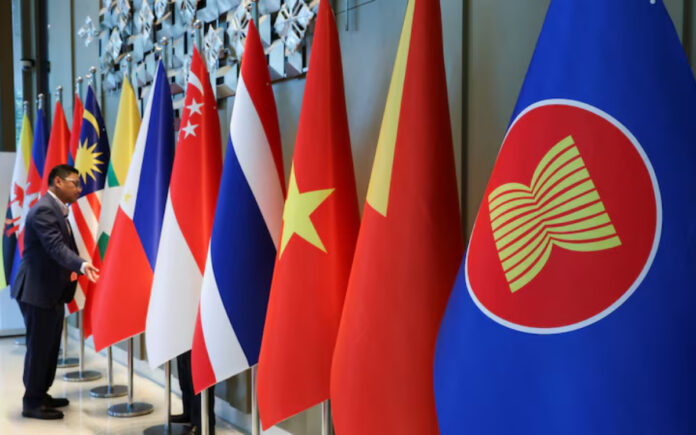Langkawi: Malaysia assumes the chairmanship of the Association of Southeast Asian Nations (ASEAN) at a crucial time for the region, facing a rapidly escalating civil war in Myanmar and rising tensions in the South China Sea. The foreign ministers of ASEAN gathered for a closed-door retreat on Sunday in Malaysia, marking the nation’s first official meeting as the rotating chair of the 10-member bloc.
The ASEAN group continues to navigate the complexities of Beijing’s growing influence in the South China Sea, while also struggling to make headway in peace efforts concerning Myanmar, where the ruling military has vowed to hold elections this year despite widespread criticism.
According to Malaysian Foreign Ministry Secretary General Amran Mohamed Zin, while Malaysia is dedicated to addressing these challenges, expectations for immediate progress on Myanmar or the South China Sea should be tempered. He noted that the ambition to find swift solutions would be unrealistic. “To say that we will have a solution immediately is going to be very ambitious,” he said in a media briefing before the retreat on Langkawi island.
Myanmar has been in turmoil since the military coup in early 2021, which ousted the democratically elected government. This led to pro-democracy protests, evolving into a larger armed resistance that has engulfed much of the country. Despite the deteriorating economic conditions and the country’s political instability, the military junta remains determined to proceed with an election this year. However, critics argue that this election is a mere façade aimed at solidifying military rule through controlled proxies.
Since the coup, ASEAN has struggled to implement the “Five-Point Consensus” peace plan, which calls for dialogue, an end to hostilities, and a pathway to resolve the crisis. The bloc has also not come to a unified stance on Myanmar’s planned election. Amran emphasized that ASEAN’s engagement with Myanmar would continue, but the lack of substantial progress highlighted the challenges faced by the bloc.
In regard to the South China Sea, which is a critical passage for global trade worth approximately $3 trillion annually, ASEAN member states have voiced concerns over China’s actions in the region. The maritime dispute has led to heightened tensions, especially between the Philippines and China, with both Vietnam and Malaysia also protesting Chinese activities in their exclusive economic zones. Despite this, China claims sovereignty over much of the waterway, and its vessels have been operating in what it deems its territory.
Also Read | Kenya Contributes 200 Additional Police Officers to Haiti’s Ongoing Security Mission
Amran mentioned that while progress has been made on formulating a code of conduct with China, achieving a binding agreement remains a significant challenge. “Each ASEAN member state has a role to play in ensuring the South China Sea is a sea of peace and trade,” he said, acknowledging the tentative steps taken towards this goal.
Philippine Foreign Minister Teodoro Locsin recently stressed the importance of beginning discussions on critical “milestone issues” for the code of conduct, such as its legal enforceability and scope. The negotiations over the code have been protracted, and experts suggest that under Malaysia’s chairmanship, tangible advancements may be limited.
Also Read | India’s Foreign Minister Calls for Thoughtful Approach to Evolving Ties with China
Geopolitical expert Adib Zalkapli from Viewfinder Global Affairs highlighted that while Malaysia is politically committed to seeking a resolution for Myanmar, he doubts substantial breakthroughs on the South China Sea under its chairmanship. “It remains an issue that the claimant states have to manage and contain, to ensure it does not unnecessarily escalate,” Zalkapli remarked.
As Malaysia steers ASEAN through these turbulent waters, the bloc’s ability to balance regional diplomacy and manage its internal divisions will be tested over the course of the year.



